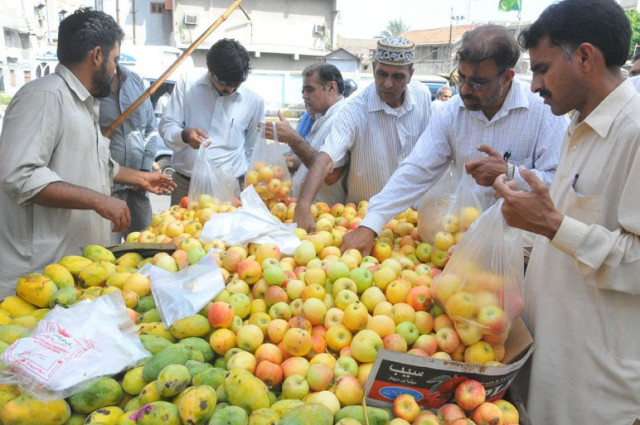Inflation eases to 8.3% in November
Prices of wheat, sugar rise in retail markets of urban, rural areas on yearly basis

The pace of inflation further eased to 8.3% in November but prices of two essential commodities - wheat and sugar - rose by 36% to 43% over a year ago in retail markets of both urban and rural areas, reported the Pakistan Bureau of Statistics (PBS) on Tuesday.
Also, contrary to the announcement by Federal Minister for Industries Hammad Azhar that the prices of sugar had started declining in the wholesale market, the PBS data showed that measured by Wholesale Price Index (WPI), the prices of sugar increased by 8.4% on month-on-month basis and by 37.6% on a yearly basis in November.
On November 24, Azhar tweeted that “ex-mill and wholesale price of sugar is on a downward trend and has declined by Rs12 per kg in the last 11 days. Arrival of government imported sugar and timely start of crushing this year have triggered this correction”.
Later on in a press conference, the industries minister reiterated that sugar prices went down by Rs10 to 12 per kg in the wholesale market and a reduction would also follow in the retail market.
The PBS stated that measured by the Consumer Price Index (CPI), the average rate of increase in prices of goods and services stood at 8.35% in November over the same month a year ago. November is the second successive month which saw CPI index slow down. On a month-on-month basis, the index jumped 0.8% in November over October, according to the PBS.
The 8.3% inflation rate was slightly better than the federal government’s expectations that had predicted inflation would remain in the range of 8.5% in November. The Ministry of Finance also said inflationary pressures may subside owing to a stable exchange rate.
Core inflation, measured by excluding food and energy goods from the commodities’ basket, slightly decelerated to 7.4% in November over October’s reading of 7.6% in rural areas, according to the PBS. In urban areas, the core inflation remained unchanged at 5.6%.
The rate of increase in food items in urban areas decelerated from 13.9% to 13% in November on a year-on-year basis. In rural areas, it slowed down from 17.7% to 16.1%, reported the data collecting agency.
The average increase in prices of perishable food items group was calculated at 6.1% last month over a year ago, according to the PBS. Prices of food and non-alcoholic group increased 15.1% from a year ago. Non-perishable food group prices also rose about 17.3%, according to the PBS.
Despite Prime Minister Imran Khan’s interest in controlling prices of wheat, wheat flour and sugar, the rates have remained high this year.
However, in case of wheat and wheat flour, the PBS reported reduction in prices on a monthly basis but the rates remained higher on a yearly basis. The federal government’s decision to import and export wheat and sugar has a direct bearing on prices in the domestic market. The government has failed to ensure availability of sugar and wheat at affordable prices, particularly for the low-income groups.
The PBS reported that wheat prices increased 36.6% in November over the same month a year ago in urban areas and 37.9% in rural areas. Prices of wheat flour rose 19.6% in in rural areas.
Sugar prices increased 35.8% in November in cities and 42.5% in villages over a year ago, according to the national data collecting agency.
Average inflation rate in the first five months of the current fiscal year (July-November) stood at 8.8%, according to the PBS. The average rate of inflation in urban areas was 7.4% and in rural areas it was 10.9%, according to the PBS.
Published in The Express Tribune, December 2nd, 2020.
Like Business on Facebook, follow @TribuneBiz on Twitter to stay informed and join in the conversation.



















COMMENTS
Comments are moderated and generally will be posted if they are on-topic and not abusive.
For more information, please see our Comments FAQ